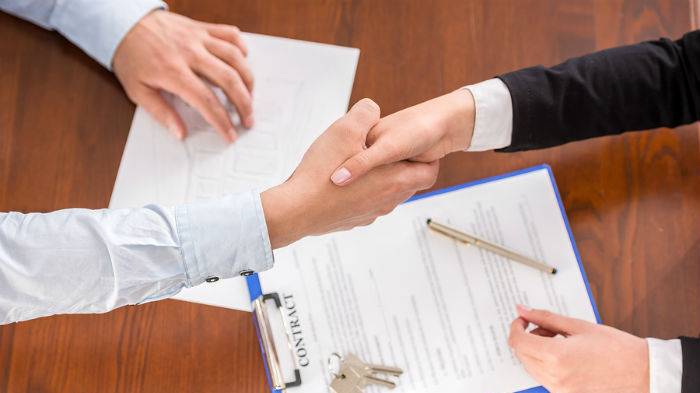You might be tempted to pay off your mortgage early if you have a lump sum of cash, or you’re selling. But it could cost you, so you'd need to weigh up if it's the right decision.
Find out more about what an early repayment charge is, how much you might need to pay, and if there's any way to avoid it.
What's an early repayment charge?
An early repayment charge, or ERC, is a fee that’s paid to your mortgage lender for paying off some types of mortgages early.
Usually the charge applies to mortgages with a fixed interest rate and mortgages with introductory periods. If you pay before the agreed end of your mortgage term, your lender may charge you to make up for the lost interest they would've made for the remainder of the term.
For example, with a 5 year fixed rate mortgage, you might get an ERC if you try and pay anything over the lenders overpayment limit before the end of the 5 year term.
When might I need to pay an early repayment charge?
If you've managed to save up a load of money that you want to use to pay off the remainder of your mortgage, think twice as you could be expected to pay an early repayment charge if it exceeds the maximum allowed limit.
You could also expect to pay an ERC if you decide to remortgage too early. That being, before the end of your current mortgage term.
People will often remortgage to try to find a better mortgage deal. But by doing this, you could get an ERC if it’s within your fixed or introductory term.
The ERC could apply if you switch by as little as 1 day before the fixed term ends.
In some situations, you have no other option but to pay an ERC, for example:
-
If you 'port your mortgage' to a cheaper property. This means you can take your current mortgage with you to a property that costs less. With a cheaper property, you might be in the position to pay back what you owe to the lender. And if you’re still within your fixed period, you could face an ERC.
-
If your request to port your mortgage is turned down and you choose to remortgage elsewhere. Sometimes this happens if your circumstances have changed. For example, if you’ve become self-employed or you’re having to pay off debts. But remember, you don't have to remortgage and you can choose to wait out until the end of the fixed or initial rate term.
-
If you have to sell your house and move somewhere else earlier than expected due to sudden changes in circumstances, such as divorce.
Are there exceptions to not paying an ERC?
In some cases, yes. With most mortgages, you can repay 10% of your outstanding loan back every year without getting charged.
So if the current balance left on your mortgage is £200,000, you’d be allowed to pay back £20,000 each year.
If you overpay your mortgage, charges would apply to the portion of money over the allowed payment.
For example, if you paid £30,000 instead of £20,000 in the first year of your 5 year fixed mortgage, you’d pay a 5% ERC* on £10,000. That makes a charge of £500.
Make sure you check the small print of your mortgage deal before you do this, as each lender varies.
*5% ERC is just used as an example, different lenders charge different amounts
How much are early repayment charges?
Every lender varies, but the early repayment charge is usually 1-5% of the outstanding mortgage.
For some mortgage deals, the ERC percentage goes down year by year. For example, if you had a 5 year fixed interest rate mortgage, you’d start off with a 5% ERC in year 1, which reduces to 4% in year 2 then 3% in year 3 and so on.
Let’s look at how this type of repayment charge might work using this mortgage example:
| Outstanding mortgage of £200,000 on a 5 year fixed rate | ERC percentage | ERC |
|---|---|---|
|
Year 1
|
5%
|
£10,000
|
|
Year 2
|
4%
|
£8,000
|
|
Year 3
|
3%
|
£6,000
|
|
Year 4
|
2%
|
£4,000
|
|
Year 5
|
1%
|
£2,000
|
So, if you're closer to the end of your mortgage term your early repayment charges could be lower. But not all lender's have to do this, it's entirely up to them.
You can choose to pay your ERC all in a lump sum if you have cash. Or if you're remortgaging with the same lender, you could spread the ERC over the length of your new deal.
How to avoid early repayment charges
There are many ways to avoid paying ERCs, such as:
-
Going with a mortgage deal that doesn't require ERCs if you decide to end your mortgage early. But these are usually standard variable rate mortgages or some tracker mortgages, where the interest rate is generally a lot higher.
-
Overpaying just the right amount. With most mortgage lenders, you can overpay 10% of the mortgage balance every year without facing ERCs.
-
If you're moving to another home that has a similar mortgage than you have now, you can port your mortgage and stick to the same lender.
-
Moving lenders at the right time, just as your current mortgage deal is ending. Some lenders may even decide to just waive the ERCs if you've only got a few months left on your mortgage. But double check with your lender before considering this.
“If you decide to get a mortgage, make sure you read the fine print on how much the early repayment charge would be if you switch deals before it ends. It can be easily missed, but a costly mistake. One of the best ways to avoid ERCs is to remortgage at the right time. You should start looking at remortgaging options around 6 months before your deal ends. Our Mojo experts can lock in a new deal for you, and you can switch when your current mortgage ends, avoiding any ERCs.”
What our mortgage expert says:

Want to know the latest mortgage rates?
Simply provide your email and our broker partner Mojo will send the latest mortgage deals straight to your inbox.








